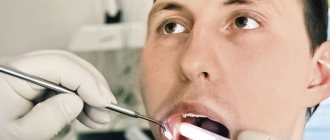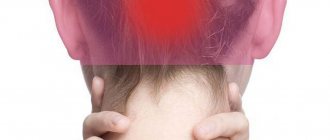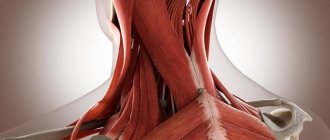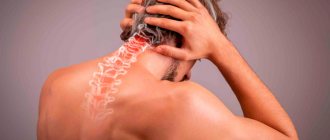Causes of numbness Associated symptoms Risks during implantation Risks during removal Diagnosis Treatment methods Possible complications Prevention
Reduced sensitivity and numbness (paresthesia) of the jaw are associated with dysfunction of the trigeminal nerve due to inflammation or damage. Patients may experience slight discomfort or serious difficulties with speech and chewing. Most often, patients complain of numbness in the lower jaw, although similar symptoms also appear in the upper jaw.
A comprehensive examination will help you figure out why your jaw goes numb. The reasons for this condition are different - from a side effect after dental treatment to a serious neurological disease. Paresthesia usually extends to part of the tongue, lips, chin, gums, and is accompanied by pain, burning, and discomfort.
If numbness occurs after dental surgery, you should contact the doctor who performed the procedure to prescribe the correct therapy. With minor nerve injury, paresthesia goes away on its own, but with prolonged numbness or serious damage, long-term treatment will be required.
Causes of jaw numbness
There are quite a few factors that can cause this symptomatology. Among the main reasons:
- accidental damage to a branch of the facial nerve during treatment, extraction, or prosthetics of teeth;
- exit of the filling mass into the mandibular canal;
- inflammation of the root region of the teeth;
- allergy to anesthetic, filling material;
- jaw injuries;
- neuroses;
- inflammation of the gums, middle ear;
- pathology of the orbital canal;
- TMJ arthritis.
In addition to dental pathologies, trauma to the facial skull, numbness and neuritis can occur against the background of frequent migraines, hypertensive crises, circulatory disorders, tumors, cervical osteochondrosis, infectious diseases, and deficiency of B vitamins.
Possible complications
This disease does not threaten health, but significantly reduces the quality of life. If you ignore an unpleasant symptom, glossalgia can become chronic. Its symptoms will occur from time to time, exacerbating the unstable psycho-emotional state. Against the background of pain, anxiety, eating disorders, sleep disorders, nervousness, and phobias can develop. As the condition worsens, treatment should be carried out not only by the dentist, but also by other specialists - a neurologist, psychiatrist or psychotherapist.
A long-lasting symptom can cause forced dietary restrictions, which can affect the overall health and cause vitamin deficiencies, weight loss, and lack of minerals.
Possible complications include inflammatory diseases of the oral cavity. For example, a lack of saliva can lead to aphthous stomatitis, and when exposed to adverse factors or injuries, the likelihood of glossitis, gingivitis and other ailments increases.
Associated symptoms
The clinical picture depends on the reasons why the jaw becomes numb. This may be a slight discomfort, slight tingling, burning, or a feeling of goosebumps. Additionally, the following symptoms may occur:
- excessive salivation;
- severe spasms (trismus) of the masticatory muscles;
- difficulty pronouncing some sounds, smiling, speaking, swallowing;
- impaired sensitivity of the lips and tongue.
Symptoms manifest in different ways. Numbness of the teeth of the lower jaw and chin, tongue, lips can be permanent or have a paroxysmal nature, cover the entire jaw or a small part of it, and manifest itself with greater or lesser intensity.
Risks of implantation
One of the complications with mandibular implantation is the risk of damage to the mandibular nerve. This can happen if the doctor calculated the size of the implants based on orthopantomogram (OPTG) data, rather than 3D tomography. As a result, during installation, the walls of the mandibular canal are damaged, a hematoma is formed, and the nerve is pinched. Reduced sensitivity of the innervation zone lasts 2-3 weeks
until the hematoma disappears.
Numbness of the lower jaw after implantation is a common complication for patients with osteoporosis. In this case, the wall of the alveolar process may be defective or completely absent. Compression of the nerve occurs due to hemorrhage into the medullary space and tissue edema. Paresthesia occurs the next day after the intervention and persists for about 7-10 days
. If sensitivity is not restored, the implant is removed and complex treatment is carried out.
Numbness of the teeth of the upper jaw after implantation is less common. Innervation of the maxillary structures is produced by three groups of branches of the facial nerve. Such a structure is quite difficult to damage. Loss of sensitivity of the upper lip and part of the cheek can occur when the alveolar branches or dental plexus are damaged in conjunction with perforation of the bottom of the maxillary sinus.
Lips go numb: cause and what to do
If you have repeatedly noticed that your lips are numb, the cause and what to do should be determined by a specialist, that is, you should consult a doctor and undergo the examination prescribed by him to establish a diagnosis. Then you need to take the prescribed medications, supplementing them with folk remedies. Herbal treatment should be carried out with the permission of a doctor.
Which doctor should I start with?
If your lips become numb for no apparent reason, you should consult a therapist. The local doctor will assess the condition and, if necessary, refer you to a neurologist, infectious disease specialist, cardiologist, endocrinologist, and other specialized specialists.
If you have other symptoms or a sharp deterioration in your health, you should call an ambulance. Perhaps it is a stroke or a hypertensive crisis, and the sooner help is received, the greater the chance of recovery.
If it is obvious that the symptom is caused by a dental problem, the teeth or gums need to be treated. When they become healthy and the symptom disappears.
Surveys
In addition to interviewing and examining the patient (including the oral cavity), measuring blood pressure and temperature, the doctor may prescribe:
- general blood and urine tests;
- measuring blood glucose levels;
- X-ray of the spine;
- EEG, CT scan of the brain;
- MRI of the brain and spinal cord;
- ECG and ultrasound of the heart;
- analysis for hidden infections.
Most likely, the patient will not need all hardware research methods; the choice is made based on the expected diagnosis. If it is not confirmed, the diagnosis continues.
Folk remedies
In complex treatment, you can use decoctions of medicinal plants that improve blood circulation and stimulate the nervous system:
- Mix 2 tsp. nettle, viburnum root and parsley, as well as 3 tsp. goldenrod, sweet clover and violet. 2 tbsp. l. pour 0.5 liters of boiling water over this assortment and simmer for 5-7 minutes. The remedy needs to be infused for the same amount of time. Then it is filtered and drunk 100 ml three times a day after meals.
- Combine equal parts of yarrow, sweet clover, primrose and horse chestnut bark. 2 tbsp. l. The mixture is placed in 1 liter of water and boiled for 5-7 minutes. The broth is filtered, a little more warm water is added and compresses are applied to the numb areas for 15 minutes.
- 1 tbsp. l. pour 250 ml of boiling water over willow bark and cook over low heat for 20-30 minutes. After cooling, the product is filtered and drunk 1-2 tsp. three times a day.
Risks of tooth extraction
Complex extraction of a tooth with a developed or deformed root system is always accompanied by the risk of damage to the branch or alveolar plexus of the trigeminal (facial) nerve. The likelihood of such a complication is especially high during the extraction of third molars (wisdom teeth). Jaw numbness after wisdom tooth removal can last from several weeks to several months. If unpleasant symptoms persist longer than 10-14 days
you need to contact the dentist who performed the removal.
How to treat numb lips
Numbness of the lips is a symptom, not a disease, so treatment consists of eliminating the pathology that caused it:
- if there is a deficiency of vitamins and microelements, medications containing them are prescribed;
- osteochondrosis is treated with painkillers, muscle relaxants, massage, acupuncture, and therapeutic exercises;
- they fight facial neuralgia with the help of painkillers and anti-inflammatory drugs, vitamins, as well as massage, acupuncture, yoga;
- for multiple sclerosis, corticosteroids and vitamin B injections are indicated;
- for diabetes, drugs that lower blood glucose levels are prescribed, as well as a diet, but physical activity is also necessary;
- if the lips are cramping, and the reason for this is excessive activity of the central nervous system, anticonvulsants are prescribed (Carbamazepine, Phenytoin, etc.);
- in case of stroke, medications are prescribed that restore blood circulation and dilate blood vessels.
Diagnostics
Diagnosis for partial or complete numbness of the teeth of the upper jaw and mandibular structures includes:
- Dental examination
to assess the general situation and provide a preliminary diagnosis. If during the examination the doctor finds a displacement of the implant or a nerve injury, further examination is of a clarifying nature. - Consultation with a neurologist
to assess the neurological status of damage to the branches of the trigeminal nerve. A specific study aimed at testing reflexes, determining sensitivity, to identify the presence/absence of nerve damage. - X-ray, CT scan of the jaw
- allow you to accurately determine the cause of loss of sensitivity. Thanks to digital equipment, it is possible to calculate the direction and degree of implant displacement down to the millimeter, determine the focus of degeneration, and identify inflammation or damage in the area of innervation disturbance.
After the initial diagnosis and establishment of the exact reason why the lower jaw or upper half of the cheek is numb, the doctor will prescribe an effective treatment. According to indications, other specialized specialists may be involved in treatment: neurologist, allergist, ENT, etc.
Prevention
The main prevention of cheilitis is maintaining a healthy lifestyle and timely treatment of any infectious and allergic diseases. Basic list of measures:
- Eat right - a balanced menu should contain an abundance of fruits, vegetables, herbs, nuts, fish, and high-quality dairy products.
- Reduce the use of cosmetics - try to choose hypoallergenic formulations and constantly monitor the skin's reaction.
- Dose your exposure to open wind or direct sunlight.
- Protect your lip skin from physical and chemical damage.
- Take vitamin and mineral complexes periodically in courses (after consultation with your doctor).
- Give up bad habits.
- Seek medical advice promptly if you have characteristic symptoms.
Remember: your health is the greatest value, and constant monitoring of its condition is very important to maintain the body’s performance, especially in old age.
Treatment methods
If a nerve trunk, branch or nerve plexus is damaged or compressed, there are two ways to solve the problem - therapeutic and surgical. Conservative therapy is indicated for incomplete loss of sensitivity, if the tooth periodically becomes numb after treatment and the symptoms do not worsen. Therapeutic treatment includes medication and physical therapy.
The operation is indicated if the feeling of numbness of the upper jaw or mandibular structures is associated with trauma during sinus lifting, displacement of bone mass, dentures, implants, or complete loss of sensitivity of the innervation zone. During the intervention, the cause of paresthesia is eliminated and the damaged nerve is reconstructed.
Symptoms of glossalgia
The main symptoms of glossalgia are:
- Burning of the mucous membrane, not associated with food intake.
- Impaired taste, metallic taste or bitterness in the mouth.
- Numbness (paresthesia) on the tip and sides of the tongue. In rare cases, numbness can spread to the root of the tongue, lips, palate, pharynx, and esophagus.
- Disappearance of discomfort during eating and intensification during nervous excitement or prolonged conversation.
Most often, symptoms of glossalgia are observed in elderly women and people with weakened immune systems. The problem can be aggravated by the fact that, trying to independently understand the causes of burning tongue, the patient constantly examines the mucous membrane, sometimes mistaking the papillae for neoplasms. This causes even more stress and, as a result, worsening of the condition.
If you have a problem similar to that described in this article, be sure to contact our specialists. Don't diagnose yourself!
Why you should call us now:
- We will answer all your questions in 3 minutes
- Free consultation
- The average work experience of doctors is 12 years
- Convenient location of clinics
Single contact phone number: +7
Make an appointment








